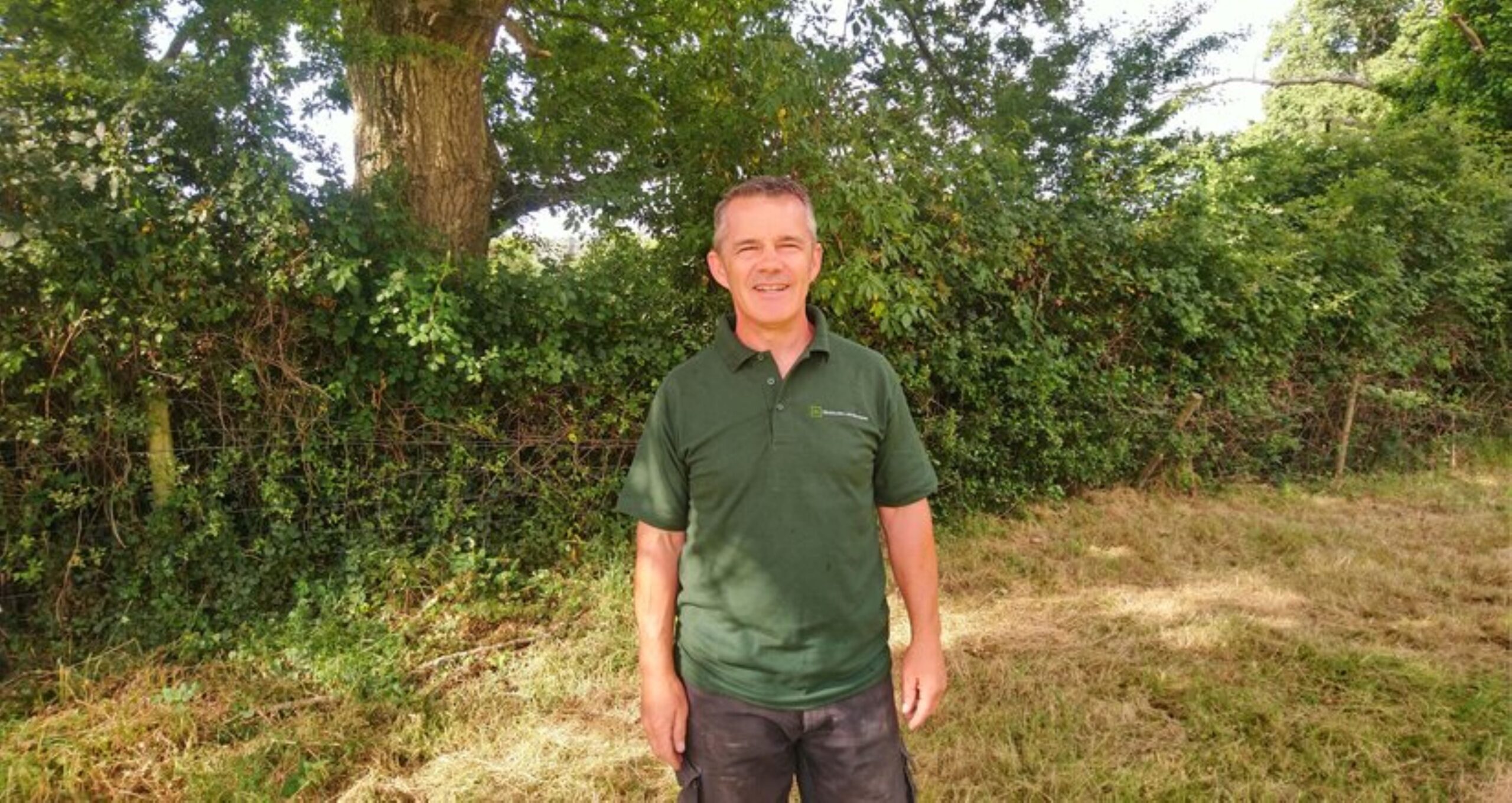Working in the landscape industry can be extremely rewarding, writes horticulturalist and gardener Gillian Taylor.
We are creating and maintaining attractive spaces for people to enjoy. For ourselves, working outside in the fresh air and sunlight gives us positive health benefits as does the physical nature of the job.
But what happens when things go wrong?
The health risks of those working as landscapers are well documented but do we recognise the signs of problems personally or in our co-workers?
Issues that arise may be due to the physical or mental demands of our work.
Physical health
The physicality of the job can lead to falls, repetitive stress injury (RSI) or heat-induced illness. The main problems seen in RSI are, in descending order of occurrence, : shoulder, neck, wrist/hand and lower back. We are often working in awkward positions for long periods. In an ideal world we would take regular breaks and change the task every hour or so but this is often impractical.
When working in warm conditions it’s important to drink plenty of water, wear light clothing and a hat to protect yourself from the sun. Skin cancer is being increasingly recognised in the UK as the climate changes. Dehydration can lead to mood swings and increased risk of injury.l9
Mental health
Mental health issues such as depression affect many workers but go unrecognised. In this industry, there can be stress due to financial concerns – many workers are self-employed or in small businesses.
Late payment by clients, worries about deadlines and the impact of lone working may all take their toll. Recent changes to tax have put pressure on employers and therefore employees. If you are working on your own for long periods it can be lonely, you may feel underappreciated and lack support from your managers.
These can all produce feelings of anxiety, fatigue and depression. It may be that you have debt issues that are spiralling out of control through missing work due to illness or family commitments.
Key indicators
Key indicators that you or your colleagues may be struggling with mental health could be:
Lateness for work – whereas in the past punctuality was good
Absenteeism – the occasional or regular day off ‘sick’
Reduced quality of work and not completing tasks on time
Irritability with colleagues or clients, or becoming withdrawn – any significant change in communication
Failure to follow safety protocols resulting in injury
What can be done, who can help?
Looking at the mental side, one of the first things to do, if you feel able, is to communicate with your colleagues and managers. Talk about how you feel and how they may be able to help by, for example, changing schedules and encouraging more social interaction between the team.
If you feel awkward speaking to someone you know, the horticultural charity Perennial (formerly Gardeners Royal Benevolent Society) would be an excellent port of call.
Perennial helps everyone in horticulture who ‘touches something green’. This includes landscapers, greenkeepers, foresters, grounds maintenance teams and arborists. They help workers still in employment and those who have retired. Their confidential helpline has experienced case workers and debt advisers who provide a friendly and informed service.
At least a third of people accessing Perennial’s services have a mental health problem.
Examples of help available from the charity include:
Health and wellbeing app with a phone support line for personal, health or work-related problems
Financial support programmes and assistance with daily living or unexpected costs
Debt and benefits advice
Physiotherapy support – to enable you to return to work more quickly and hence reduce worry about money
Employment support service – help with CVs, training and interviews and sometimes financial help with courses
Provision of mental health first aider training courses for employees to enable them to support colleagues in the workplace
Just a few examples from hundreds who accessed Perennial’s services are:
Peter
When Peter, a Hampshire-based landscaper, called Perennial’s helpline, he was struggling with significant business and personal debt. He was feeling very low, his marriage had ended and Covid had significantly impacted his work, the charity notes. “He’d always tried to do everything himself but it was all too much. He confided in an industry mentor who suggested it was time to get help.”

Perennial talked through his situation and helped him access specialist support from a business debt charity, which encouraged him to call them for specific advice about the best way to wind up his business.
“I’d held on to my business for longer than I should have and couldn’t decide what was best,” Peter said. “Perennial was there for me in my hour of need and may well have saved my life. It sounds dramatic, but their calm guidance at a time when my life was in turmoil massively helped me.”
Peter now has a job with a landscaping company. “I’m in a far better place now, both financially and mentally. There’s a macho thing that you have to get on with it but sometimes you just can’t and you’ve got to share the load. I hope my story will help others.”
Deric
“Having been involved in landscaping for over 30 years, I have gained deep knowledge of the sector and seen first-hand the impact poor mental health can have on people working in horticulture.

“I joined one of the first accredited Mental Health First Aider courses Perennial provided and it has had a huge impact here at Glendale.”
Andy
Andy from Leicestershire had a serious work-related injury, which resulted in him becoming a wheelchair user:
“I was unable to work, struggling financially and needed some help. My family were supportive but without Perennial I’m not sure what would have happened.
“Perennial sorted out my finances, helped with benefit applications . . . and helped with adaptations to enable me to have an accessible workshop from which to start a new career as a carpenter.”
Perennial is here to help – don’t hesitate to contact them to discuss any problems.
Helpline number: 0800 093 8543
www.perennial.org.uk



